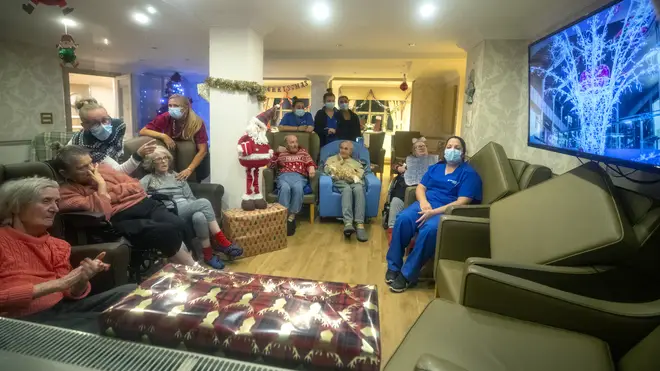
Henry Riley 10pm - 1am
19 November 2020, 08:10 | Updated: 19 November 2020, 08:12

The testing of care home residents and staff is set to be expanded as part of Covid research into the immune response of vulnerable groups, with some 14,000 people to be tested quarterly.
An expansion of the Vivaldi study will look at questions around whether people can be infected twice, how quickly antibodies wane and whether the immune response is different in the elderly compared with younger generations.
It comes as scientists have reportedly admitted advice given to the Government early on in the pandemic did not reflect the infection risk posed by agency staff working across multiple care homes.
A new documentary has spoken with University of Manchester academic Dr Ian Hall, who told the broadcasters that scientists did not know about the risk and were working at a fast pace in a developing area with limited data.
Read more: Christmas lockdown: Families could face a month of restrictions for festive meet

Keir Starmer and Boris Johnson clash on support for self-isolating
As part of the current Vivaldi study, which began in June and is led by University College London (UCL), staff and residents across 100 care homes were tested.
The Department of Health and Social Care (DHSC) said this is being expanded throughout November to 340 homes - taking in approximately 4,500 residents and 9,500 staff - to improve the understanding of how the virus is affecting care homes across England.
During the study, blood samples are taken from care home residents and staff and used to test for the presence of antibodies.
That data is cross-referenced with swab testing in care homes to analyse the prevalence of the virus over time, the DHSC said.
Read more: Health officials 'hopeful' of household mixing over Christmas

Science and medical chiefs quizzed on Christmas Covid restrictions
The department said analysis of how the immune response to the virus works in different groups could help shape the public health response, as well as wider social care policy.
Care minister Helen Whately said the study's expansion is "another step towards improving our understanding of the virus".
She added: "Testing people's antibody reaction to Covid-19 is crucial in helping us to control the spread of the virus, particularly amongst people who are vulnerable.
"The more we know about this virus and are able to control it, the safer it will be for people in care homes."
Dr Laura Shallcross, from UCL's institute of health informatics, said: "Expanding the Vivaldi study will tell us how many people living and working in care homes have been infected with Covid-19, and whether being infected once protects against future infections.
"This study will help us protect the most vulnerable members of society from this devastating infection."
The news comes as it has been revealed the timetable for developing and approving a Covid vaccine has been condensed due to the coronavirus crisis.
But England's deputy chief medical officer Jonathan Van-Tam has said the standards are "no lower" because this is a public health emergency.
In a Downing Street data briefing on November 11, Professor Van-Tam set out how the timetables for developing and approving a vaccine both during "peacetime" and during the crisis.
Traditionally vaccine development would take several years and include various processes including design and development stages followed by clinical trials.
British regulators said the safety of the public always come first.
Dr June Raine, chief executive of the Medicines and Healthcare products Regulatory Agency (MHRA), told the November 11 briefing: "A Covid-19 vaccine will only be approved once it has met robust standards of effectiveness, safety and quality."
Listen & subscribe: Global Player | Apple Podcasts | Google Podcasts | Spotify